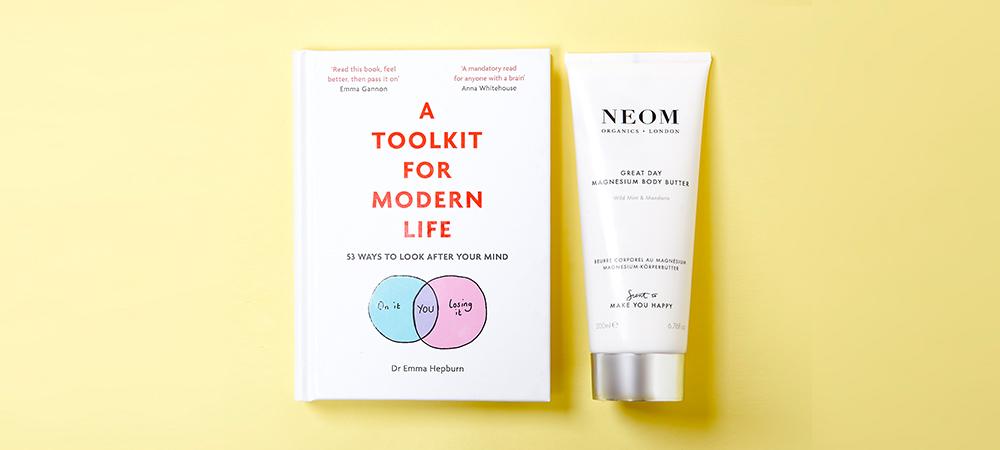Mindfulness, meditation, journaling - they’re all great coping mechanisms to turn to when you’re feeling under pressure, but they don’t work for everyone. Some people just don’t feel comfortable jotting down feelings or trying to take their mind elsewhere. But that doesn’t mean you can’t alleviate your anxiety or alter your mood. According to Dr Emma Hepburn, clinical psychologist, author of A Toolkit for Modern Life and @thepsychologymum on Instagram where she has over 109k followers, it’s about choosing the techniques that work for you.
Famed for her easy to digest diagrams and helpful analogies about how the brain works and what we can do to appease feelings of overwhelm or dissatisfaction, her sole goal is to give you the tools and strength to keep your mental health in check, even if you feel like you’re about to snap. “As a psychologist, I focus more on a range of factors which impact on successfully achieving change, including personal circumstances and the environment you live in,” she says. Here she gives us six go-to tips to help us navigate our way through lockdown and everyday life without losing our mind…

FIND EASY COPING STRATEGIES
Like nearly everybody I am exhausted at this stage in the pandemic so coping strategies for me need to be small, gentle and achievable. Getting outside every day and doing something small that gives me a sense of connection, relaxation or achievement is helpful. But also spotting self-criticism, allowing yourself to go slower and take it a bit easier and reminding yourself of what you have managed today.
TAKE BABY STEPS
Anything new we do or learn changes our brain by generating links between neurons, but when we think about ‘retraining our brain’ it requires conscious efforts to first learn these new habits or skills and then incorporate them into our lives. Set clear, tangible and positive goals of what you want to achieve and build towards them in small steps instead.

EMBRACE ‘DON’T’ TIME
I love shifting the brain’s tendency to focus on negative aspects by reflecting every day on things that have gone well, you’ve enjoyed or achieved. In my book, I call this a ‘ta-da’ list. Planning ‘don’t’ time or downtime in your schedule to do this and letting yourself relax is so important to allow your brain and body to recharge.
BE COMPASSIONATE
Learning to be aware of, understanding and accepting of your emotions rather than ignoring or fighting them can be really beneficial for people. It’s the same with children if they’re struggling. Help them notice their emotions by naming or talking about what’s happening and find ways to respond helpfully. You can use books or diagrams such as my anxiety roundabout to help children learn the signs that emotions are rising and what they can do when they notice this. Whatever age you are, things like breathing exercises, listening to music or taking a break can be helpful.

A BUMPY ROAD IS THE BEST ROAD
Learning new skills is harder when we are overwhelmed or stressed as we don’t have the cognitive resources to dedicated to the effortful cognitive process required to initiate this. You are also less likely to be successful if you constantly berate or criticise yourself or perceive setbacks as personal failures rather than inevitable bumps in the road. Try to problem solve your setbacks rather than avoid them so you can continue on to achieve your aims.
NURTURE EVERY DAY
Our brain is a physical organ and just like we nurture our body every day we need to nurture our brain. Luckily the same things apply, so sleep, hydration, a healthy diet, social connection, managing stress, exercise and relaxation will all help to nurture and look after our brain.
For more tips and tricks about how you can get off the anxiety roundabout, deal with high-stress situations and spend some time acknowledging your emotions, Dr Emma Hepburn’s book is perfect to dip in and out of and is part of our Happiness Edit that’s will get you smiling on the inside and out.
Words: Becci Vallis

